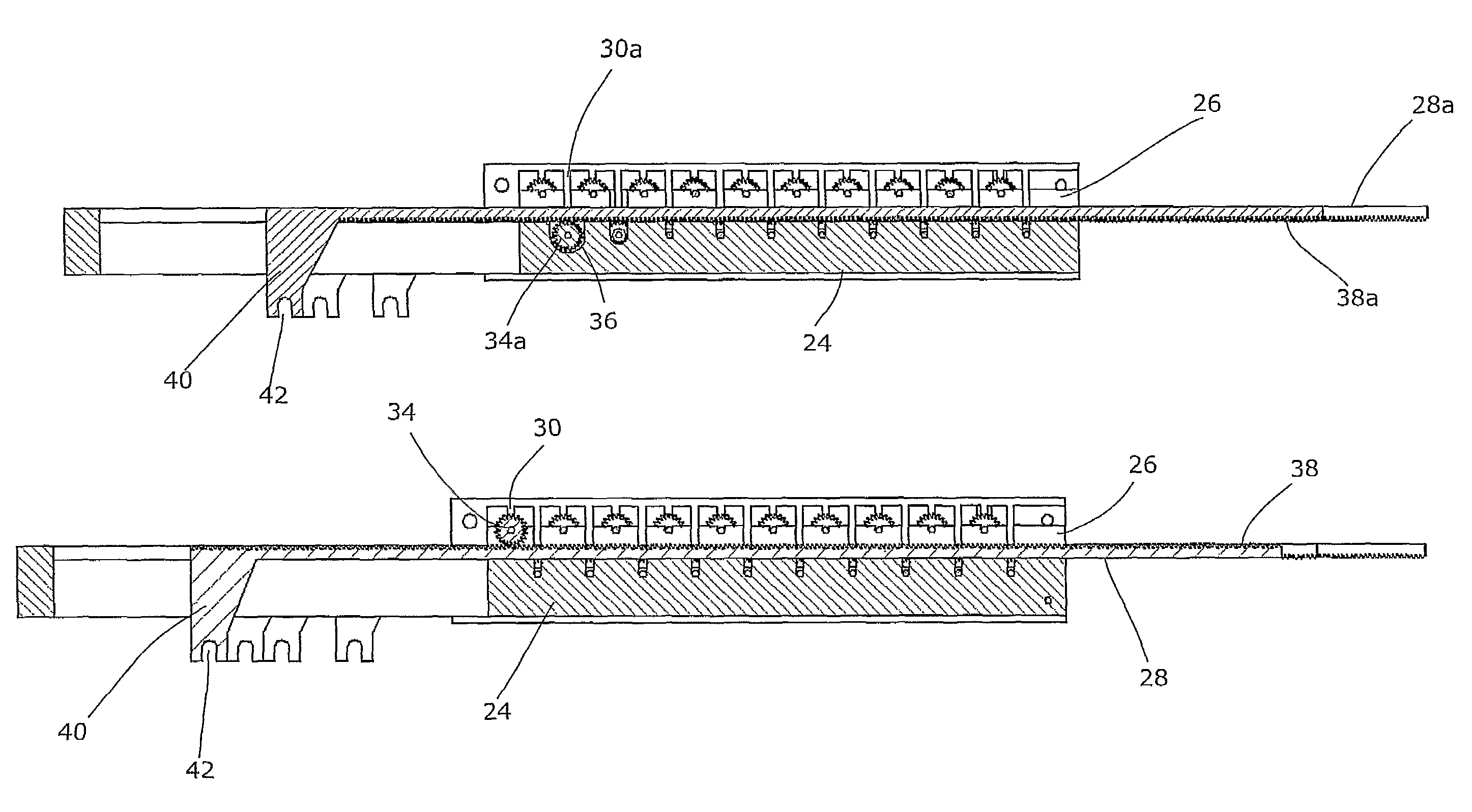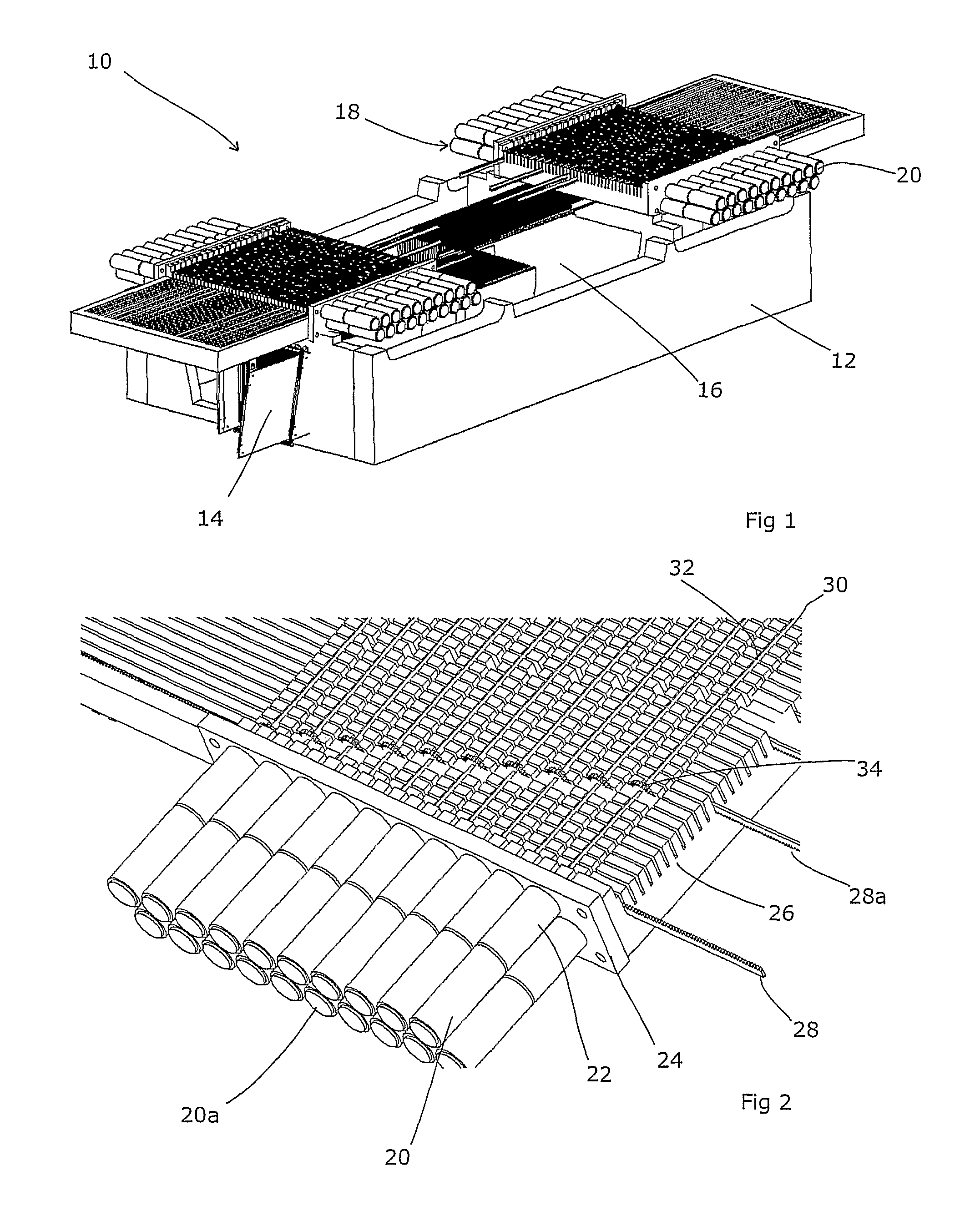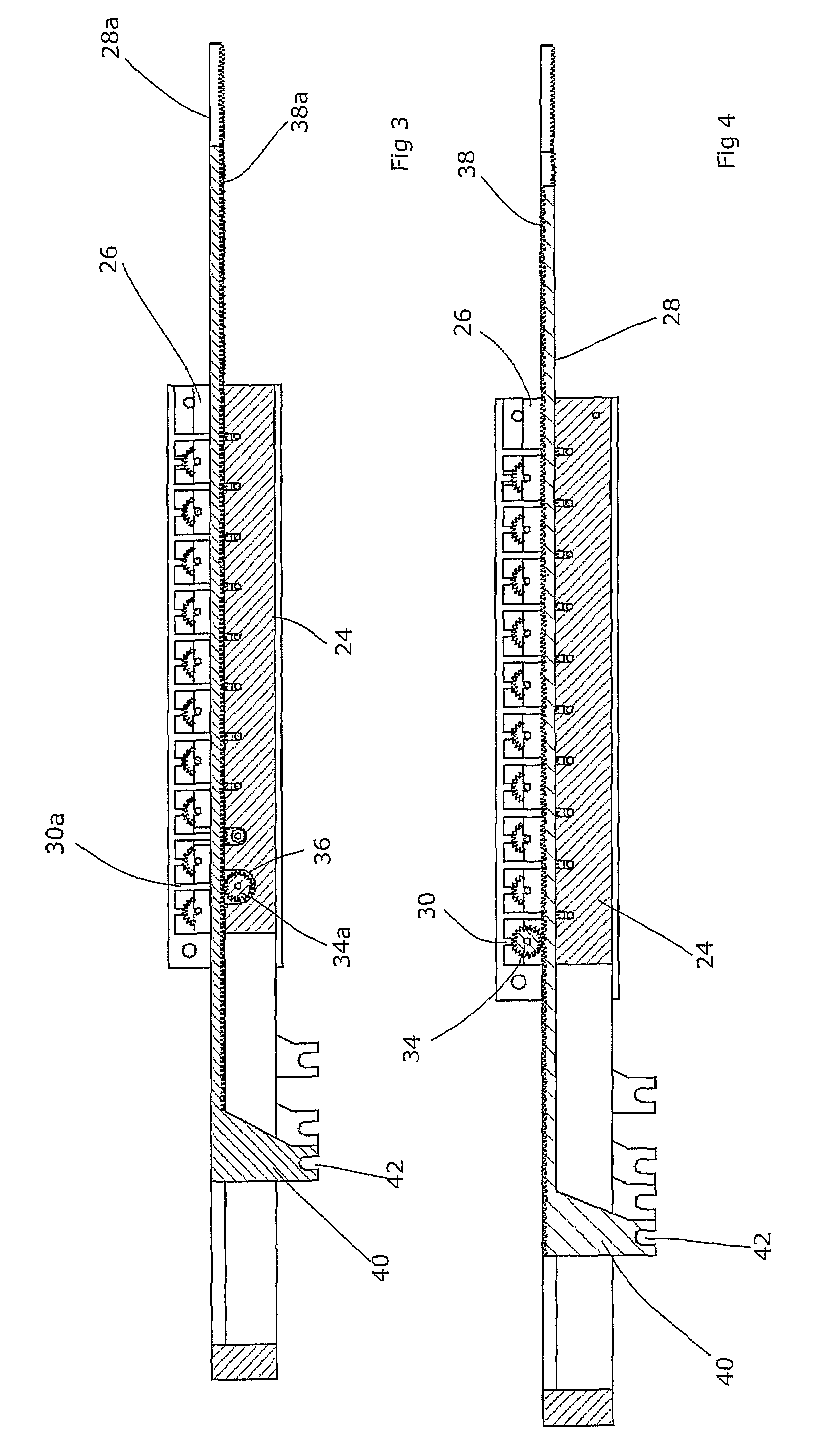Multi-leaf collimator
a collimator and multi-leaf technology, applied in the field of multi-leaf collimators, can solve the problems of increased likelihood of recurrence, increased side effects, and longer recovery time after treatment, so as to reduce the weight of the material, save the weight, and reduce the weight
- Summary
- Abstract
- Description
- Claims
- Application Information
AI Technical Summary
Benefits of technology
Problems solved by technology
Method used
Image
Examples
Embodiment Construction
[0027]FIG. 1 shows a multi-leaf collimator 10. A housing 12 contains two opposing arrays of elongate leaves 14, a selection of which are shown in FIG. 1. These leaves 14 are each moveable longitudinally within the array so that they can each project by a greater or lesser distance into the open space 16 disposed generally in the middle of the housing 12. In use, a beam of radiation is directed through that open space 16 and its extent is collimated by the leaves 14. The leaves are relatively thin so as to allow a high resolution to be obtained, but they are relatively deep in the direction of the beam in order to render them fully opaque at X-ray energies. The leaves 14 are relatively elongate so as to allow them to adopt a wide range of positions.
[0028]For each array of leaves 14, there is a drive unit 18. This has arrays of motors 20 on either side, each of which is associated with an individual leaf. A suitable micro-processor will typically be provided (not shown) which will pro...
PUM
 Login to View More
Login to View More Abstract
Description
Claims
Application Information
 Login to View More
Login to View More - R&D
- Intellectual Property
- Life Sciences
- Materials
- Tech Scout
- Unparalleled Data Quality
- Higher Quality Content
- 60% Fewer Hallucinations
Browse by: Latest US Patents, China's latest patents, Technical Efficacy Thesaurus, Application Domain, Technology Topic, Popular Technical Reports.
© 2025 PatSnap. All rights reserved.Legal|Privacy policy|Modern Slavery Act Transparency Statement|Sitemap|About US| Contact US: help@patsnap.com



